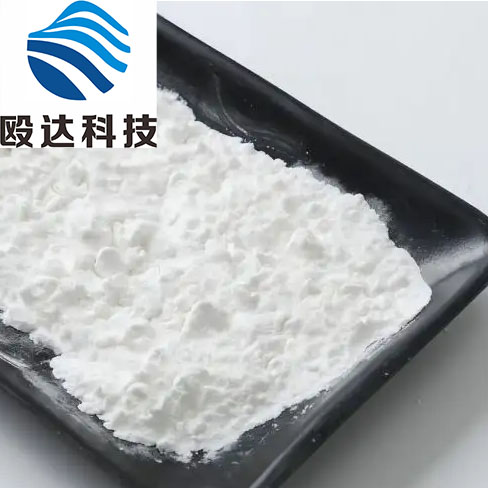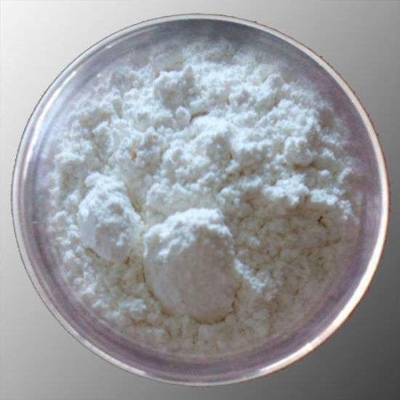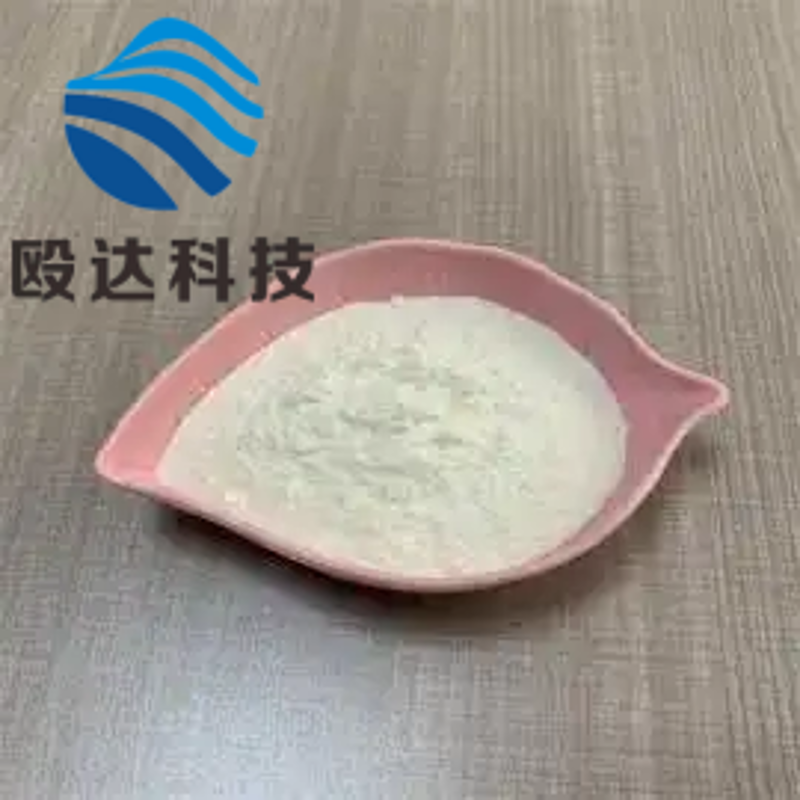-
Categories
-
Pharmaceutical Intermediates
-
Active Pharmaceutical Ingredients
-
Food Additives
- Industrial Coatings
- Agrochemicals
- Dyes and Pigments
- Surfactant
- Flavors and Fragrances
- Chemical Reagents
- Catalyst and Auxiliary
- Natural Products
- Inorganic Chemistry
-
Organic Chemistry
-
Biochemical Engineering
- Analytical Chemistry
- Cosmetic Ingredient
-
Pharmaceutical Intermediates
Promotion
ECHEMI Mall
Wholesale
Weekly Price
Exhibition
News
-
Trade Service
▎Edited by WuXi AppTec's content team In type 1 diabetes, the body's immune system mistakenly attacks the pancreatic beta cells that produce insulin
.
Beta cell damage can lead to insufficient or disappearance of insulin secretion in the body, thereby affecting the regulation of blood sugar levels.
Therefore, patients with type 1 diabetes must take exogenous insulin for the rest of their lives
.
Can the immune system's attack on pancreatic islet B cells be slowed down? A research team from Linköping University, Sweden, recently published a phase 2b trial in Diabetes Care, a journal of the American Diabetes Association (ADA).
The results show that through vaccine immunization, injection of a protein is expected to change type 1 The immune defense of diabetic patients helps patients maintain the level of insulin produced by the body
.
Screenshot source: Diabetes Care In type 1 diabetes, the immune system usually forms antibodies against a protein called GAD65 (glutamate decarboxylase)
.
GAD exists and is synthesized in pancreatic β cells
.
Glutamate decarboxylase antibody (GADA) is an immune marker in the early onset of type 1 diabetes, and it is also used as an indicator for monitoring the efficacy of type 1 diabetes patients receiving treatment
.
This study aims to vaccinate GAD components for patients with elevated GAD antibodies, hoping to make the immune system more tolerant of the body's own GAD, thereby stopping the destruction of pancreatic β cells and promoting insulin secretion
.
The researchers recruited a total of 109 recipients between the ages of 12 and 24 who were diagnosed with type 1 diabetes in the near future (7 days to 193 days), elevated serum GAD65 autoantibodies, and fasting serum C-peptide >0.
12 nmol/L.
The candidates are then randomly assigned to 2 groups
.
In the experimental group, the researchers injected 4 μg of GAD (one injection per month, 3 times in total) and oral vitamin D (2000 IE per day for 120 days); while the control group received a placebo
.
The main outcome was the secretion of serum C-peptide (insulin replacement index) between baseline and 15 months
.
The research team also focused on the subgroup of patients carrying the HLA DR3-DQ2 gene
.
Human Leukocyte Antigen (HLA) is closely related to the function of the human immune system
.
A gene called HLA DR3-DQ2 exposes the GAD protein (GAD65) on the surface of β cells to the immune system, triggering the immune system to produce antibodies against the protein and destroying β cells
.
Therefore, people with the HLA DR3-DQ2 genotype may have a higher risk of type 1 diabetes
.
Image source: 123RF results found that although the treatment group and the placebo group have no difference in the degree of maintaining insulin production
.
However, compared with subjects with the same genotype in the control group, GAD injection did have a positive effect on patients with HLA DR3-DQ2 genotype after 15 months.
The average area under the curve of serum C peptide was larger.
The effect of "vaccine" in promoting insulin secretion is 55.
7% higher than that of placebo (therapeutic effect ratio=1.
557; P=0.
0078)
.
During the study, no adverse reactions that may be related to GAD injection were observed
.
The researchers pointed out in the paper that injecting GAD protein into the human lymphatic vessels is a simple and well-tolerated treatment for type 1 diabetes; at the same time, vitamin D supplementation seems to retain the newly developed type 1 diabetes patients carrying the HLA DR3-DQ2 gene.
The C peptide
.
The combined application of the two is expected to become a precise treatment method for improving type 1 diabetes
.
Related Reading "The Lancet" Sub-Journal: Protecting β-cells in Type 1 Diabetes Patients, Liraglutide Combination Therapy Passed the Proof of Concept International Research NEJM: Preserving insulin secretion, immunotherapy moves forward to "cure" Type 1 Diabetes! Stop insulin and reverse type 1 diabetes! Rare cases of NEJM suggest that the therapeutic potential of JAK inhibitors is expected to regenerate β cells and restore insulin secretion? Long-term patients with type 1 diabetes find positive signs that more patients with type 2 diabetes can benefit! Two JAMAs called for more extensive use of continuous blood glucose monitoring reference materials: [1] Ludvigsson, J.
, Sumnik, Z.
, Pelikanova, T.
, Chavez, LN, Lundberg, E.
, Rica, I.
, .
.
.
& Casas , R.
(2021).
Intralymphatic Glutamic Acid Decarboxylase With Vitamin D Supplementation in Recent-Onset Type 1 Diabetes: A Double-Blind, Randomized, Placebo-Controlled Phase IIb Trial.
Diabetes Care.
[2] Diabetes vaccine gives promising results in a genetic subgroup.
Retrieved MAY 24, 2021, from https://medicalxpress.
com/news/2021-05-diabetes-vaccine-results-genetic-subgroup.
html Note: This article aims to introduce medical and health research progress, not a treatment plan recommendation
.
If you need guidance on the treatment plan, please go to a regular hospital for treatment
.
.
Beta cell damage can lead to insufficient or disappearance of insulin secretion in the body, thereby affecting the regulation of blood sugar levels.
Therefore, patients with type 1 diabetes must take exogenous insulin for the rest of their lives
.
Can the immune system's attack on pancreatic islet B cells be slowed down? A research team from Linköping University, Sweden, recently published a phase 2b trial in Diabetes Care, a journal of the American Diabetes Association (ADA).
The results show that through vaccine immunization, injection of a protein is expected to change type 1 The immune defense of diabetic patients helps patients maintain the level of insulin produced by the body
.
Screenshot source: Diabetes Care In type 1 diabetes, the immune system usually forms antibodies against a protein called GAD65 (glutamate decarboxylase)
.
GAD exists and is synthesized in pancreatic β cells
.
Glutamate decarboxylase antibody (GADA) is an immune marker in the early onset of type 1 diabetes, and it is also used as an indicator for monitoring the efficacy of type 1 diabetes patients receiving treatment
.
This study aims to vaccinate GAD components for patients with elevated GAD antibodies, hoping to make the immune system more tolerant of the body's own GAD, thereby stopping the destruction of pancreatic β cells and promoting insulin secretion
.
The researchers recruited a total of 109 recipients between the ages of 12 and 24 who were diagnosed with type 1 diabetes in the near future (7 days to 193 days), elevated serum GAD65 autoantibodies, and fasting serum C-peptide >0.
12 nmol/L.
The candidates are then randomly assigned to 2 groups
.
In the experimental group, the researchers injected 4 μg of GAD (one injection per month, 3 times in total) and oral vitamin D (2000 IE per day for 120 days); while the control group received a placebo
.
The main outcome was the secretion of serum C-peptide (insulin replacement index) between baseline and 15 months
.
The research team also focused on the subgroup of patients carrying the HLA DR3-DQ2 gene
.
Human Leukocyte Antigen (HLA) is closely related to the function of the human immune system
.
A gene called HLA DR3-DQ2 exposes the GAD protein (GAD65) on the surface of β cells to the immune system, triggering the immune system to produce antibodies against the protein and destroying β cells
.
Therefore, people with the HLA DR3-DQ2 genotype may have a higher risk of type 1 diabetes
.
Image source: 123RF results found that although the treatment group and the placebo group have no difference in the degree of maintaining insulin production
.
However, compared with subjects with the same genotype in the control group, GAD injection did have a positive effect on patients with HLA DR3-DQ2 genotype after 15 months.
The average area under the curve of serum C peptide was larger.
The effect of "vaccine" in promoting insulin secretion is 55.
7% higher than that of placebo (therapeutic effect ratio=1.
557; P=0.
0078)
.
During the study, no adverse reactions that may be related to GAD injection were observed
.
The researchers pointed out in the paper that injecting GAD protein into the human lymphatic vessels is a simple and well-tolerated treatment for type 1 diabetes; at the same time, vitamin D supplementation seems to retain the newly developed type 1 diabetes patients carrying the HLA DR3-DQ2 gene.
The C peptide
.
The combined application of the two is expected to become a precise treatment method for improving type 1 diabetes
.
Related Reading "The Lancet" Sub-Journal: Protecting β-cells in Type 1 Diabetes Patients, Liraglutide Combination Therapy Passed the Proof of Concept International Research NEJM: Preserving insulin secretion, immunotherapy moves forward to "cure" Type 1 Diabetes! Stop insulin and reverse type 1 diabetes! Rare cases of NEJM suggest that the therapeutic potential of JAK inhibitors is expected to regenerate β cells and restore insulin secretion? Long-term patients with type 1 diabetes find positive signs that more patients with type 2 diabetes can benefit! Two JAMAs called for more extensive use of continuous blood glucose monitoring reference materials: [1] Ludvigsson, J.
, Sumnik, Z.
, Pelikanova, T.
, Chavez, LN, Lundberg, E.
, Rica, I.
, .
.
.
& Casas , R.
(2021).
Intralymphatic Glutamic Acid Decarboxylase With Vitamin D Supplementation in Recent-Onset Type 1 Diabetes: A Double-Blind, Randomized, Placebo-Controlled Phase IIb Trial.
Diabetes Care.
[2] Diabetes vaccine gives promising results in a genetic subgroup.
Retrieved MAY 24, 2021, from https://medicalxpress.
com/news/2021-05-diabetes-vaccine-results-genetic-subgroup.
html Note: This article aims to introduce medical and health research progress, not a treatment plan recommendation
.
If you need guidance on the treatment plan, please go to a regular hospital for treatment
.







